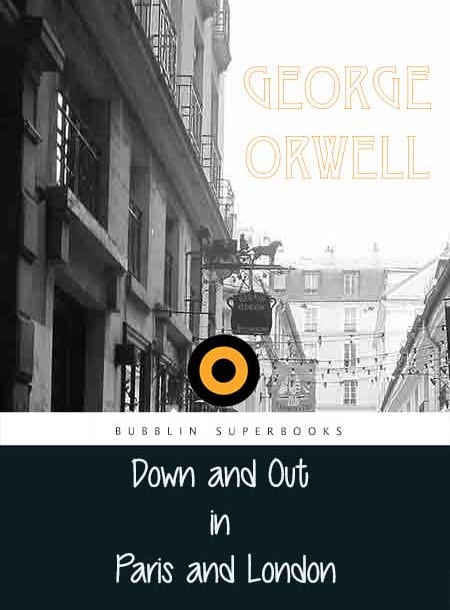The book opens in Paris with a description of the hotel and neighborhood where Orwell is lodging. The overall impression is of filth and hunger and a quietly endured, never-ending desperation for Paris’s poor. Though the wealthy do feature in this book, they are like ghosts, flitting in and out of the narrative, but ultimately are not anything that Orwell can interact with or relate to on a meaningful level.
A one-time English tutor, Orwell has found himself without a job and low on funds. Work in Paris is scarce, particularly for a foreigner, so he begins to economize by cutting out essentials like wine and cigarettes and then, inevitably, food. His good clothes are soon pawned, along with the suitcase they were packed in, but the money he gets buys bread and butter for no more than a few days. Desperately searching for any kind of work, he seeks out and finds an old friend, Boris, an enormously fat Russian who at one point was a waiter. Boris, however, is also out of work, practically starving, and almost dying of illness and hunger when Orwell finds him. Somewhat rejuvenated by seeing his friend again, Boris insists the pair will soon find work. A dozen weeks (and many bouts of hunger, fatigue, and desperation) later, the two finally do land jobs at a hotel restaurant—Boris as a waiter, and Orwell as a plongeur, or dishwasher.
But no ordinary dishwasher. The work of a plongeur is physically and spiritually exhausting—fourteen hours a day of frantic cleaning, scrubbing, and sweeping in the sweltering heat of a basement kitchen. And it’s at this point in the story that one telling characteristic becomes painfully apparent. Unlike other young men’s autobiographies, Orwell’s Down and Out gives no mention—ever—of love, desire, or even the pursuit thereof. His entire life has three main objectives: struggling through the workday, eating something, and grabbing a few hours of sleep before the travail starts again.
Despite the toil, Orwell is not at all miserable, and he has to be goaded by Boris into quitting the job at the hotel for a position as plongeur at a new restaurant for which the Russian will be the maitre d’, quite a step up from waiter. The new kitchen, though, is even more cramped and, in contrast to the professional working conditions of the hotel, abysmally filthy. He has to work eighteen to twenty hours a day to keep up and gets less money for it. Demoralized, Orwell decides to return to London.
